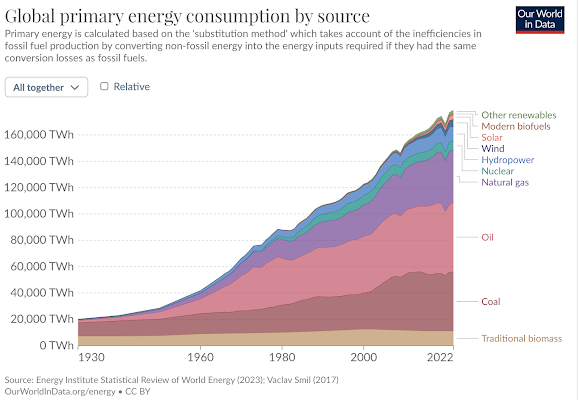I could somewhat tongue in cheek summarize the book message as.
- Never trust the FDA, (or any other government agency) of approval, disapproval, mandate, etc
- Beware of Jews working hard to become wealthy to create a good name, and show their ability to rise from the Holocaust.
- If Jews are involved, the sins of the fathers should never be forgotten (unlike Germans, Kennedy's, etc)
- Big time lawyers that defend Democrats are absolved. Clark Clifford is mentioned, a VERY influential lawyer that defended the Sacklers, but there is no hint as to HOW "influential".
- I believe everyone deserves legal representation, and bigger targets require stronger lawyer defence, and they understand they need to acquire it, and pay huge fees for it.
- In the case of Trump, "guilty until proven innocent beyond a reasonable doubt" (vs innocent until proven guilty ...) , lawyers pay a high price for defending even a president that the weaponized "justice" department will do anything to convict of SOMETHING (even while he is in office).
I found this quote from that Insider review to be interesting.
JI: Is the implication that the Sackler family is kind of like a modern American drug cartel?Notwithstanding the quoted denial, the comparison to Mexican Drug Cartels in the book, especially relative to some of those drug lords losing all their wealth, while the Sackler family kept much of theirs, was brought up a few times. "Free samples for doctors", as well as trips, dinners, etc are a staple of Big Pharma. The idea that it was "special" with the Sacklers is just specious.
Keefe: No, I mean, I think [that’s] kind of pushing it too far, and I wouldn’t go that far. I guess this is what I would say: I’ve always been interested in the ways in which illegal drug organizations resemble legal businesses, and I became very interested in some specific ways in which legal Big Pharma practices sometimes resemble those of drug cartels — for instance, offering free samples to an addictive product. In the case of Purdue, they offered these coupons for a free prescription, and that’s something I know because I’ve looked into it at great length. When the Sinaloa cartel decided that methamphetamine was going to be their big new product, they started sending free samples to Chicago so that people would try it. But I think sometimes people get a little carried away with the rhetoric and they try and draw too precise an analogy there. Let’s remember, nobody’s suggesting that the Sacklers, or Purdue, had roving gangs of armed assassins, right? I mean, I think this is a business that did break the law and engage in crime. They pled guilty again in 2020, just a few months ago. So there’s illegality there, but it’s of a different category than the Sinaloa cartel, and I wouldn’t want to suggest otherwise.
Up until reading this book, I didn't have much interest in the origin of Fentanyl, just that it is an extreme problem killing 100K Americans a year at this point, heavily connected with the open Southern border -- although there is a strong push to claim the open border makes no difference.
Fentanyl, Where did it all go wrong? Turns out the FDA approved Fentanyl as well ... and again, my bias is involved. My wife needed Fentanyl to control extreme pain from having her spinal column expanded and rods put in to save her from being paralyzed from the neck down. Should the FDA not have approved it because it could be misused and cause addiction? As much as I believe the FDA to be a corrupt inefficient agency primarily concerned with enriching officials via the revolving door to the drug companies, my answers is no. Inefficiency and corruption in government, private and corporate greed, and people unable to resist addiction are often the price we pay to get helpful drugs. We should work to limit damage, but not at the cost of killing ot submitting people to tortuous pain to protect the addicts.
Page 407, "In recent years , some observers have begun to suggest that the opioid crisis was actually just a symptom of a deeper set of social and economic problems in the United States, that suicide and alcohol related deaths were also on the rise, and that all of these fatalities should be understood as part of a larger category of "deaths of despair".
On page 230 we see:
"It is a particular hallmark of the American economy that you can produce dangerous products and effectively off-load any legal liability for whatever destruction that product may cause by pointing to the individual responsibility of the consumer".The removal of individual responsibility seems more to be a direction of Western civilization than uniquely "American". Naturally the author specifically points out guns ... indirectly asserting that gun manufacturers ought to be sued when their products are used for murder. The removal of personal or government responsibility, and moving it to external sources seems a large part of the books agenda,
My wife's surgeon was especially outraged by her unwillingness to take Oxy for her pain because of fear of addiction based on the idea that "oxy is addictive". It is, if abused, it isn't if used as directed.
Kennedy thought solely in terms of economics. Although he said he cared about the fate of Jews and persecuted minorities, in the end he thought they would have to be sacrificed for the greater good of the United States and its allies. Like Hitler, Kennedy believed in a Jewish cabal, which had thwarted him and that was intent on instigating incidents that would draw America into a disastrous war. “To defeat fascism,” Kennedy argued in a memorandum, the United States would “have to adopt totalitarian methods” and strike deals with dictators.



